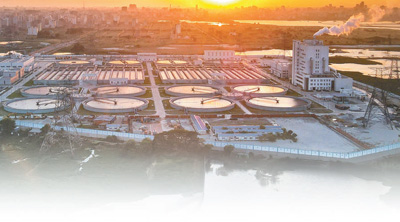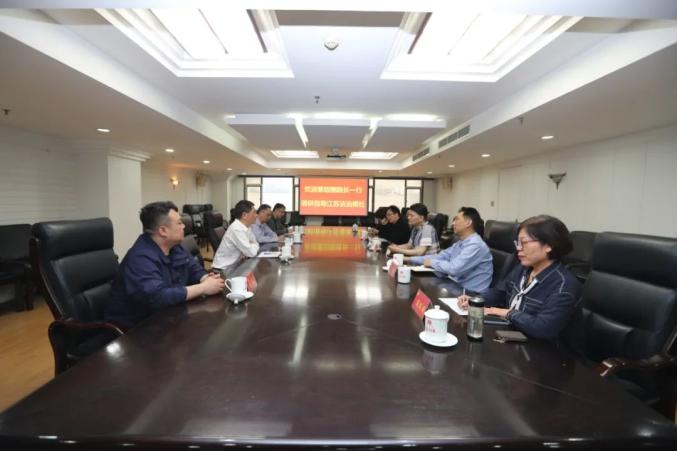Xinjiang Responds To US Sanctions Again: It Cannot Stop Enterprises And Industries From Growing
Xinjiang Responds To US Sanctions Again: It Cannot Stop Enterprises And Industries From Growing
(Source: New United Front Language) The unreasonable sanctions in the United States are infringing on the employment rights of workers of all ethnic groups in Xinjiang under the guise of "protecting human rights". ——A member of the Standing Committee of the Party Committee of Xinjiang Uygur Autonomous Region and the Autonomous Region..._Sina.com
The unreasonable sanctions in the United States are infringing on the employment rights of workers of all ethnic groups in Xinjiang under the guise of "protecting human rights".
——Chen Weijun, member of the Standing Committee of the Party Committee of Xinjiang Uygur Autonomous Region and Executive Vice Chairman of the Autonomous Region

This year marks the 70th anniversary of the founding of the Xinjiang Uygur Autonomous Region. The State Council Information Office held a press conference on September 19 to release the white paper "Successful Practice of the Party's Xinjiang Governance Strategy in the New Era", inviting Wang Gang, Vice Minister of the Central Propaganda Department, Erken Tuniyazi, Deputy Secretary of the Party Committee of the Xinjiang Uygur Autonomous Region and Chairman of the Autonomous Region, Chen Weijun, Standing Committee Member of the Party Committee of the Xinjiang Uygur Autonomous Region and Executive Vice Chairman of the Autonomous Region, and Wang Jianxin, Standing Committee Member of the Party Committee of the Xinjiang Uygur Autonomous Region and Minister of the Propaganda Department, to present the relevant situation of the white paper and answer questions from reporters.
reporter:
The United States has included more than 140 Chinese companies on the list of entities involved in the United States' Xinjiang-related bill in the past few years. What impact does this have on Xinjiang's economy and employment? How can the Xinjiang Uygur Autonomous Region government help local enterprises respond?
Chen Weijun:
We have emphasized on many occasions and through different channels that there is no form of "forced labor" in Xinjiang at all. Workers of all ethnic groups have independently, spontaneously and voluntarily found employment through their yearning and pursuit of a better life, and their various labor rights and interests are fully protected. In recent years, the United States has used the so-called "forced labor" to sanction enterprises and individuals involved in Xinjiang and interfere in my country's internal affairs, which is essentially engaging in political manipulation and economic bullying under the guise of "human rights". In the short term, US sanctions will have certain adverse effects on Xinjiang's economic development. For example, some enterprises' exports of products are blocked, their interests are damaged, their production capacity has declined, and their employment opportunities for workers of all ethnic groups, including the Uyghurs, have decreased. Therefore, the unreasonable sanctions in the United States are infringing on the employment rights of workers of all ethnic groups in Xinjiang under the guise of "protecting human rights". If there is anything forced, the United States is compulsory and forced unemployment. In the long run, Xinjiang is the forefront of my country's opening up to the west, with a large domestic market of 1.4 billion people and an international market for Asia, Europe and Africa. In recent years, Xinjiang's characteristic and advantageous industries have developed rapidly, opening up to the outside world has continued to deepen, and traded with more than 220 countries and regions around the world. More and more "Made in Xinjiang" are sold around the world, and are deeply favored by consumers from all over the world. We have the determination to "no matter how winds east, west, south and north" and the courage to "not be afraid of clouds covering our sight". The US sanctions cannot hinder the development of Xinjiang, nor can we prevent the development and growth of enterprises or industries.
At present, the country has issued relevant laws, regulations and departmental regulations to counter the unreasonable sanctions of the United States. In 2024, the Standing Committee of the People's Congress of the Xinjiang Uygur Autonomous Region issued relevant resolutions to oppose the so-called "Series of sanctions related to Xinjiang" and support the development of sanctioned enterprises and related industries, and resolutely fight back against the US's abuse of unilateral sanctions. For us, on the one hand, we will actively provide services to sanctioned enterprises, support enterprises to take up legal weapons, and safeguard their legitimate rights and interests in accordance with the law; on the other hand, we will support enterprises to increase investment in science and technology, improve product quality, enhance market competitiveness, and open up a broader international market, promote these industries and enterprises to overcome immediate difficulties, become more mature and powerful, and also bring employment opportunities to more workers of all ethnic groups.
Faced with the current situation, what do I want to say in the end? I want to say that if you don’t know the true face of Xinjiang, everything is in fact. Therefore, Xinjiang is open and Xinjiang is also enthusiastic. We are willing to provide the greatest convenience for friends at home and abroad to visit Xinjiang for exchanges, so that everyone can feel the real Xinjiang and let everyone embrace the beautiful Xinjiang.
reporter:
In recent years, Xinjiang has integrated the regional opening-up strategy into the overall layout of the country's opening-up to the west, and has accelerated the construction of the core area of the Silk Road Economic Belt. Is Xinjiang taking any measures to open up to the outside world?
Chen Weijun:
Xinjiang adheres to the strategy of opening up to the outside world unswervingly. In recent years, with the country's opening up to the west and the construction of the core area of the Silk Road Economic Belt, Xinjiang's policies, location and development advantages have continued to be released, and it has gradually become a frontier of opening up to the outside world, becoming an important gateway for my country's opening up to the west. Xinjiang is located in the core area of the Eurasian continent. Standing in Xinjiang, you can see the entire world from afar. The five ports are connected to eight countries and the whole way is connected to Europe and Asia, which is a true portrayal of Xinjiang. Today, Xinjiang has the advantage of time and place, and people of all ethnic groups embrace the world and look forward to the future with great enthusiasm.
From a policy perspective, the CPC Central Committee and the State Council have given Xinjiang a special and important "five strategic positionings" in the overall national situation, including the Asia-Europe Golden Channel and a bridgehead for opening to the west, and a strategic fulcrum for building a new development pattern. The state approved the establishment of the China (Xinjiang) Pilot Free Trade Zone, established 14 categories of 56 national key open platforms and industrial development platforms in Xinjiang, and gave a series of special preferential policy support. From a location perspective, the New Asia-Europe Continental Bridge, China-Mongolia-Russia, China-Central Asia-West Asia, and China-Pakistan Economic Corridor converge at Xinjiang. We border 8 countries. Currently, 19 ports are open to the outside world. It is an important window for my country to open westward and an international golden channel for my country to enter Central Asia, South Asia, West Asia and even Europe. From an industrial perspective, in recent years, Xinjiang has been based on "the country needs and Xinjiang can", relying on rich energy, minerals and agricultural resources, and has accelerated the construction of a modern industrial system that reflects Xinjiang's characteristics and advantages. It has broad room for development in the field of modern agriculture, trade and logistics, advanced manufacturing, new energy, green computing power, characteristic cultural and tourism, and has huge potential for industrial chains and supply chain cooperation with Central Asia, the Middle East and European countries.
We actively integrate into the overall layout of the country's opening up to the west, relying on the unique location advantages of the core area of the "Belt and Road" to accelerate the construction of "one port, two districts, five centers, and port economic belts", and the door to opening is getting bigger and bigger. We have steadily expanded institutional opening up. A series of preferential policies such as several measures to support the stable development of foreign trade have been introduced, and 129 reform pilot tasks of the free trade pilot zone have been fully launched, of which more than 80 have been implemented and phased results have been achieved. For example, the rapid customs clearance of agricultural and sideline products at the Sino-Kazakhstan, China-Taman and China-Kyrgyz border ports has been shortened from the original 5 days to the current one. We are making every effort to promote the continuous acceleration of the "Asia-European Golden Channel". We have now opened 119 bilateral international road transport lines and 10 multilateral international road freight lines; in 2024, there were 16,400 China-Europe (Asia) freight trains, which have remained above 10,000 for five consecutive years. The transportation network across mountains and rivers and interconnected by highways, railways and flights is becoming increasingly developed, and is closely connected with the world market. We continue to expand the "circle of friends" of foreign trade. We held various economic and trade activities with high quality and carried out trade with more than 220 countries and regions around the world. Last year, we held the 8th China-Europe Expo, with a total contract amount of 610 billion yuan. Through unremitting efforts, Xinjiang's opening up to the outside world has shown a strong development momentum. The Chairman just mentioned that our total import and export volume has increased from 158.96 billion yuan in 2012 to 434.16 billion yuan last year, bringing new development opportunities to many countries and regions in the world. From the busy Alashan Pass and Horgos Port to the China-Europe freight train connecting Central Asia and Europe, a more open, confident and vibrant Xinjiang is opening its arms to welcome global partners to share development opportunities and write a new chapter of win-win cooperation in the Silk Road Economic Belt.





